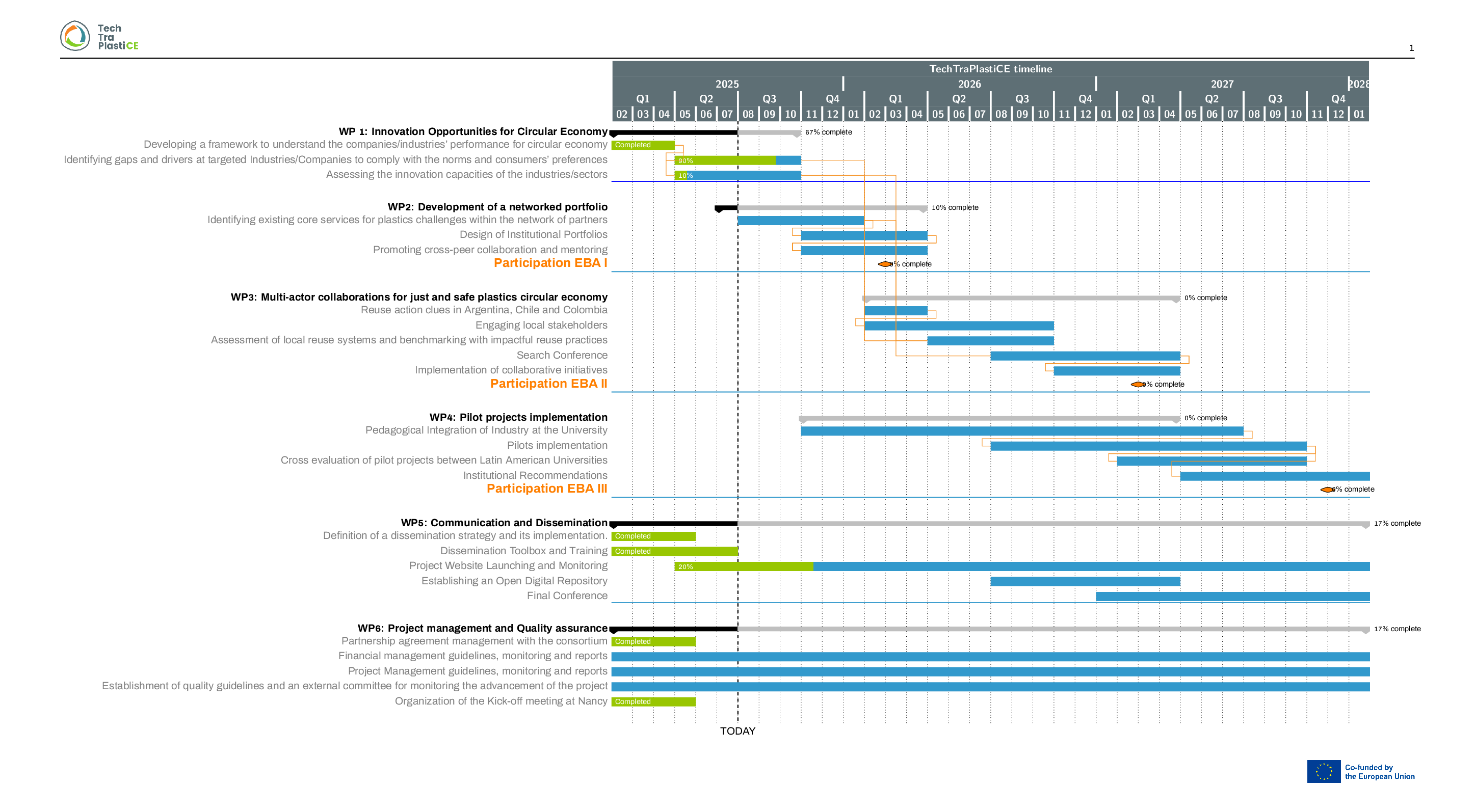Main Goal
🎯 The main goal is to reinforce the applied research and technological transfer capacities of the universities improving their services portfolios to strengthen the plastic industry’s contribution to the green transition.
🧩🧩 The ambition is to foster the collaboration and partnerships of the University with socio-economic stakeholders to incubate, establish and develop circular initiatives, demonstrating operational success by carrying out joint recycling interventions integrating actors in the plastics value chain in Colombia, Argentina, and Chile.



















